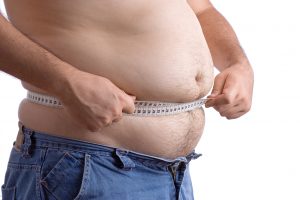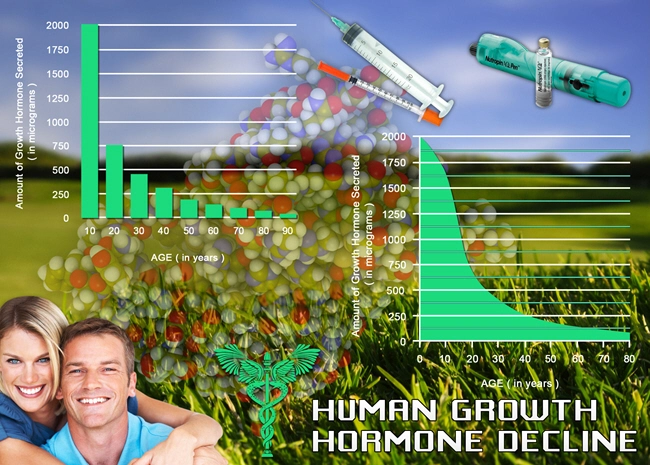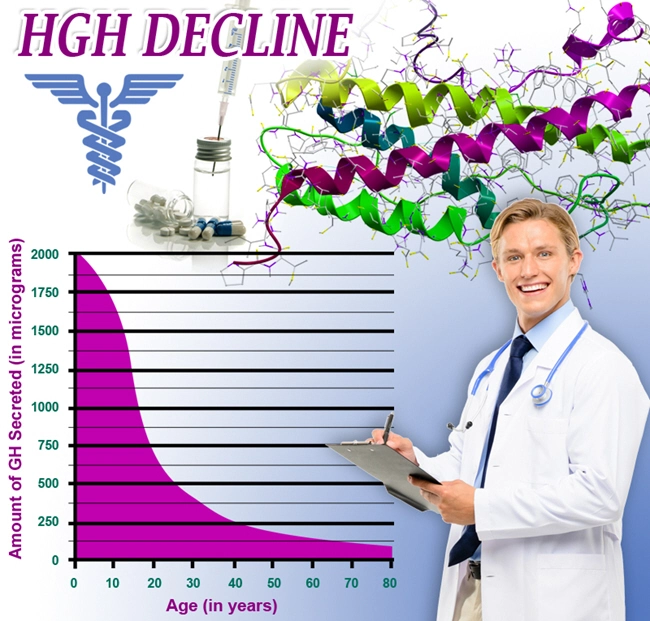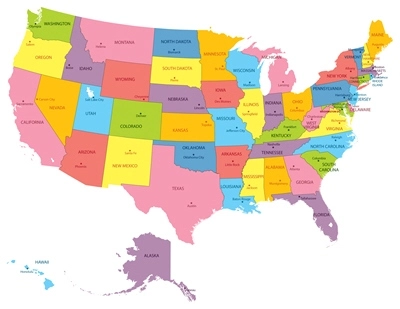
Video Link: https://vimeo.com/285994286
Video Download: Click Here To Download Video
Video Stream: Click Here To Stream Video
Video Link: https://vimeo.com/285995232
Video Download: Click Here To Download Video
Video Stream: Click Here To Stream Video
Ever Wonder Why You Can't Lose Weight…
Even When You Do Everything Right?
Maybe You're Trying Too Hard!
Finally, Here Are The Facts You Need To Melt The Fat...Once And For All!
It's frustrating...maddeningly frustrating. You've sworn that this time it's going to be different. You're meticulously counting your calories. You're following your exercise routine strictly. You're not cheating with binges.
Yet the Mirror and Scale Aren't Lying

The numbers on the scale aren't budging. And the image you see in the mirror is so far from being “beach ready” that it's almost funny...if it weren't so depressing.
In spite of the heroic, almost super-human effort, you're stuck in neutral. The pounds stubbornly cling, as does the fat...especially around your mid-section, the area where you least want it.
In desperation, you may be tempted to do what all-too-many people do: double and even triple your efforts. Crank up the exercise intensity, slash calories even further to the bone, and make sure your already bland menu is even more spartan and miserable.
But More Sacrifice IS NOT the Answer
It may seem quite counter-intuitive that re-doubling your efforts may backfire. But that's what most people discover the hard way. When hard work, tons of sweat, and iron-like self-discipline is not showing the results that were promised, the reaction is usually a combination of depression, frustration, anger...and a decision to try even harder.

But before you go from running a few miles every other day to training for a marathon, and following some radical diets (The Elimination Diet, Vegan, Adkins, Paleo, Gluten-free, Pritkin, Master Cleanse, The Raw Diet, Fruitarian and Elizabeth diets, etc.), save yourself the effort by remembering two simple words…
WATER RETENTION
Think about this. How in the world could you practically starve yourself and exercise until you drop -- and still not lose weight and fat? Why, why, why?
To answer that, consider how your body reacts to a restricted calorie regimen. Typically, after beginning a determined dietary effort, the pounds come off for the first few weeks. Some of this is fat, but the mirror doesn’t reflect that, due to the increased water retention that occurs when dieting. Then, seemingly without warning, the weight drops in spurts, at times overnight.
 The explanation of this paradox is rather simple. When calorie restriction begins, the body retains water. As we lose more fat, we hold more water. When there is an increase in calorie intake, often due to a “cheat day” in which the dieter resumes a regular eating pattern, the pounds finally drop.
The explanation of this paradox is rather simple. When calorie restriction begins, the body retains water. As we lose more fat, we hold more water. When there is an increase in calorie intake, often due to a “cheat day” in which the dieter resumes a regular eating pattern, the pounds finally drop.
This is due to the adrenal gland releasing cortisol, the so-called “stress hormone” as a response to the stress of a dramatic drop in calorie intake. Also, many people trying to lose weight exercise far longer than usual, which kicks in an even more significant amount of cortisol release. In other words, too much stress, too quick. This sets the stage for the body to retain water in excess amounts.
Now, when the “re-feeding day” occurs, cortisol levels plummet...and the pounds finally drop. This is the logical, scientific explanation for this strange phenomenon. And it also tells us in plain language exactly why starvation diets and hours and hours of exercise don't immediately reward you with rapid weight-loss.
But there is one more piece to add to the puzzle: the role of sodium. To further elaborate, let's turn to professional athletes, for whom cutting weight is a tool of the trade.
An Example From the Sporting World
 Many athletes in the fitness world have become adept at manipulating the fluid balance in their bodies. In particular, competitive bodybuilders and combat athletes (wrestlers, boxers, and mixed-martial artists) know how to take the weight off quickly, and add it back even quicker.
Many athletes in the fitness world have become adept at manipulating the fluid balance in their bodies. In particular, competitive bodybuilders and combat athletes (wrestlers, boxers, and mixed-martial artists) know how to take the weight off quickly, and add it back even quicker.
Bodybuilders need this ability to stand on the stage “ripped,” which is defined as having very low body-fat, to look larger and more muscular. Combat athletes need this knowledge to weigh-in at the limit of the weight division they compete in.
Some ways of doing this are dangerous. But by relying on fluid, carbohydrate, and sodium intake for short periods of time, weight can be lost and gained safely. Here is a simple formula that many athletes use:
- Eight days away from the competition: double water intake, which leads to an increase in urinary fluid loss and water conservation in the body. Stay with this for two days.
- Six days away from the competition: double water intake again. At this point, you are imbibing more than four times the usual consumption of water. This stimulates more water loss. Also, carbohydrates are restricted to 50-100 grams daily, and sodium intake is increased by adding a small amount of salt to drinking water. This routine continues for four days.
- Two days away from the competition: water consumption is slashed four-fold. For example, you were consuming two gallons of water daily, drop it to one-half gallon. At this point, your body is used to excreting significant amounts of fluid, and it takes a while to adjust. The result? The sudden drop produces a negative water balance. Essentially, you're dehydrating your body by forcing it to lose water in higher amounts than you're taking in. Also, increase carbohydrate to 200-400 grams per day, which will flood the muscles with stored glycogen and draw water into the intracellular spaces. This gives a muscular and leaner look at the same time. Finally, avoid all sodium. Cut all salt out of your diet and avoid all foods high in sodium. Similar to the water manipulation described above, your body had become accustomed to excreting significant amounts of sodium and will keep doing it, which results in more sodium leaving the body than coming in.
 One day from the competition: cut water intake in half once again, maintain increased carbohydrate intake and keep sodium as low as possible.
One day from the competition: cut water intake in half once again, maintain increased carbohydrate intake and keep sodium as low as possible.- Gameday: avoid water until after the weigh-in, then refuel with water, sodium, and carbohydrates.
What This Means to the Average Person
- Never attempt a starvation diet. If you dramatically slash your calorie intake, the result will be most unpleasant: water retention, which, as you now know, will sabotage your weight-loss plans. Keep your calorie restriction to approximately 20-25% of normal when you are trying to lose weight.
- You don't need to put in hours and hours of excise every day. At first glance, this seems contradictory. More exertion = more weight loss, right? WRONG! Too much exercise will pump massive amounts of cortisol into your system, which will increase water retention, thus creating another obstacle to weight-loss. Stay active, but don't overdo it, and don't feel guilty about taking a day off to rest and recover.
- Have a “cheat day” or “re-feeding day,” when you eat just about anything you want. This is not a green light to go berserk and attack every doughnut shop in town. Let common sense prevail, and don't go overboard. But as mentioned earlier, raising your calorie intake will relieve stress, lower cortisol, and result in a few pounds coming off. This seems implausible, but the science is there. Just try it...it works.
- Monitor your sodium and potassium intake. Never forget that sodium is a mineral that loads up the cells with water. Therefore, it is evident that excess sodium intake will result in water retention. Want proof? After being super strict with your diet hit a restaurant for a huge, salt-loaded meal and get on the scales the next day. Potassium works precisely the opposite, as it lowers the fluid level of your cells. Sodium pumps it in; potassium pumps it out. Be always aware of your sodium/potassium ratio, since most folks consume far more sodium than potassium...and most people are overweight. Don't follow the crowd!
 Losing weight is never easy. But the way all-too-many people attempt it makes a difficult task nearly impossible. However, now that you are armed with the knowledge of the science behind weight-loss, you will be able to avoid the landmines that snag so many, take the pounds and inches off...and keep them off!
Losing weight is never easy. But the way all-too-many people attempt it makes a difficult task nearly impossible. However, now that you are armed with the knowledge of the science behind weight-loss, you will be able to avoid the landmines that snag so many, take the pounds and inches off...and keep them off!
References
https://www.mayoclinic.org/healthy-lifestyle/weight-loss/in-depth/weight-loss-plateau/art-20044615
https://www.webmd.com/diet/obesity/features/plateau-no-more#1
Contact Us Today For A Free Consultation
Dear Patient,
Once you have completing the above contact form, for security purposes and confirmation, please confirm your information by calling us.
Please call now: 1-800-380-5339.
Welcoming You To Our Clinic, Professor Tom Henderson.

- Obese Patients Have a Higher COVID-19 Mortality Risk Than the General Public [Last Updated On: January 24th, 2025] [Originally Added On: August 21st, 2020]
- The Health and Hormone Balancing Qualities of Broccoli [Last Updated On: July 10th, 2024] [Originally Added On: August 27th, 2020]
- What to eat to boost testosterone [Last Updated On: August 13th, 2024] [Originally Added On: December 14th, 2020]
- The Top 25 Most Nourishing and Sustaining Foods to Add to Your Diet Today for Increased Longevity [Last Updated On: January 16th, 2025] [Originally Added On: February 16th, 2021]
- Fight Inflammation and Osteoporosis with Beets! [Last Updated On: January 14th, 2025] [Originally Added On: February 18th, 2021]
- Break a Weight Loss Plateau with Apple Cider Vinegar [Last Updated On: January 14th, 2025] [Originally Added On: February 20th, 2021]
- An Intriguing Look into How Growth Hormone Production and Fasting are Linked [Last Updated On: January 18th, 2025] [Originally Added On: February 21st, 2021]
- Health Reasons for a Vegan Diet [Last Updated On: September 24th, 2024] [Originally Added On: April 2nd, 2021]
- Leafy Greens are Medicine for Your Gut [Last Updated On: August 27th, 2024] [Originally Added On: April 23rd, 2021]
- All Praise to the Spud -- the Delicious, Health-Giving Potato, That Is [Last Updated On: July 11th, 2024] [Originally Added On: June 1st, 2021]
- 16 Cancer-Causing Foods to Avoid [Last Updated On: June 12th, 2024] [Originally Added On: August 12th, 2021]
- Longevity and Anti-Aging -- The Use of Flax Seed Oil [Last Updated On: May 30th, 2024] [Originally Added On: August 17th, 2021]
- Essential Amino Acids Critical to Health and Hormone Balance [Last Updated On: July 5th, 2024] [Originally Added On: October 6th, 2021]
- Growth Hormone and Calcium [Last Updated On: January 11th, 2025] [Originally Added On: October 16th, 2021]
- Growth Hormone and Coffee [Last Updated On: January 9th, 2025] [Originally Added On: October 19th, 2021]
- The Importance of Protein in Weight Loss and Testosterone Production [Last Updated On: January 19th, 2025] [Originally Added On: October 19th, 2021]
- Testosterone, Growth Hormone, and Sugar. [Last Updated On: January 9th, 2025] [Originally Added On: October 19th, 2021]
- Testosterone, Growth Hormone, and Processed Meat [Last Updated On: January 8th, 2025] [Originally Added On: October 19th, 2021]
- Growth Hormone and Intermittent Fasting [Last Updated On: January 7th, 2025] [Originally Added On: October 19th, 2021]
- Growth Hormone and the Importance of Nutrition [Last Updated On: January 7th, 2025] [Originally Added On: October 20th, 2021]
- Growth Hormone Stops Inflammation! [Last Updated On: January 8th, 2025] [Originally Added On: October 20th, 2021]
- Growth Hormone and Sugar Addiction [Last Updated On: January 4th, 2025] [Originally Added On: October 20th, 2021]
- Growth Hormone and Red Meat [Last Updated On: January 5th, 2025] [Originally Added On: October 20th, 2021]
- Boost Growth Hormone with Sleep [Last Updated On: June 11th, 2024] [Originally Added On: October 20th, 2021]
- A Natural Acid Found in Apples Prevents Muscle Loss AKA Sarcopenia [Last Updated On: January 10th, 2025] [Originally Added On: October 20th, 2021]
- Growth Hormone and Organic Foods. [Last Updated On: January 3rd, 2025] [Originally Added On: October 21st, 2021]
- Growth Hormone and Acidosis [Last Updated On: January 5th, 2025] [Originally Added On: October 21st, 2021]
- Growth Hormone Food Choices [Last Updated On: January 2nd, 2025] [Originally Added On: October 21st, 2021]
- Growth Hormone and Cholesterol: the Surprising Link [Last Updated On: January 6th, 2025] [Originally Added On: October 22nd, 2021]
- Growth Hormone and Weight Loss [Last Updated On: January 3rd, 2025] [Originally Added On: October 22nd, 2021]
- Growth Hormone Reduces Inflammation [Last Updated On: January 4th, 2025] [Originally Added On: October 24th, 2021]
- What You Eat Impacts Both Your Sleep AND Your Growth Hormone Production [Last Updated On: January 10th, 2025] [Originally Added On: October 24th, 2021]
- Growth Hormone Lowers Blood Sugar [Last Updated On: January 6th, 2025] [Originally Added On: October 24th, 2021]
- Testosterone and Magnesium [Last Updated On: June 13th, 2024] [Originally Added On: April 28th, 2022]
- The Beneficial Functions of Brown Fat vs. White Fat [Last Updated On: June 17th, 2024] [Originally Added On: May 3rd, 2022]
- MOTS-c Peptide for Weight Loss and Muscle Building [Last Updated On: July 3rd, 2024] [Originally Added On: November 7th, 2022]
- Looking to lose weight? Add this ingredient to meals [Last Updated On: August 24th, 2024] [Originally Added On: December 7th, 2022]
- The many health benefits of black tea [Last Updated On: August 23rd, 2024] [Originally Added On: December 13th, 2022]
- Raw Food Benefits [Last Updated On: August 20th, 2024] [Originally Added On: January 18th, 2023]
- Brain Foods that Work Together with HGH to Improve Mental Sharpness [Last Updated On: February 14th, 2025] [Originally Added On: March 9th, 2024]









